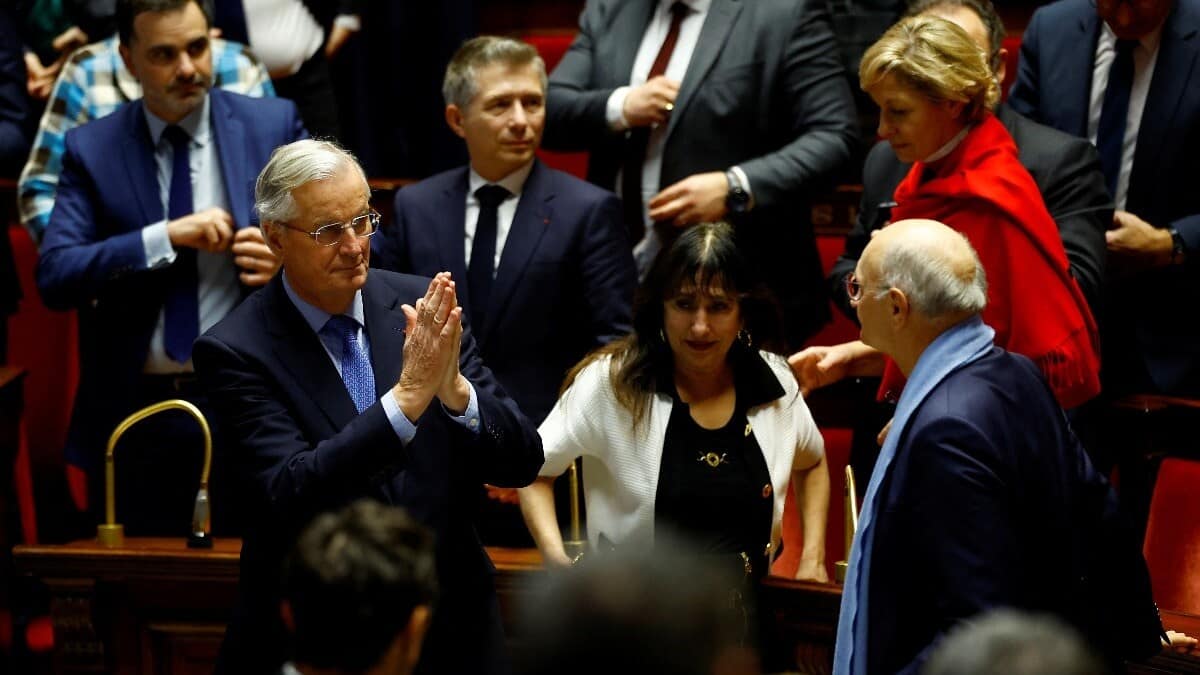Why French PM was ousted after just 91 days
What's the story
French Prime Minister Michel Barnier was on Wednesday ousted from office after a historic no-confidence vote by lawmakers.
The vote, which was held on Wednesday, saw 331 MPs backing the motion, exceeding the required 288 votes.
This is the first successful no-confidence vote against a French government since 1962.
Consequently, Barnier becomes the shortest-serving prime minister in France's Fifth Republic, which started in 1958.
Budget controversy
Barnier's controversial budget leads to backlash
Barnier's tenure was only three months long after President Emmanuel Macron appointed him in September.
His tenure was marred by controversy over a proposed budget to reduce France's deficit.
The budget proposed €60 billion in tax hikes and spending cuts to reduce the deficit to five percent next year.
It was strongly opposed by the far-right National Rally and the left-wing New Popular Front (NFP).
Constitutional conflict
Barnier's use of Article 49.3 sparks political unrest
On Monday, Barnier invoked Article 49.3 of the constitution to pass the budget without parliamentary approval, a move that further angered opposition parties.
Marine Le Pen, leader of the National Rally, said their decision to support the no-confidence motion was made "to protect the French people," not taken "with a light heart."
Leading up to the vote, Macron promised to carry out his term, which ends in 2027, but he will now have to appoint a new PM.
Election demands
Calls for early presidential elections amid political crisis
The no-confidence motion was introduced by the hard-left and gained support from Le Pen's faction.
Mathilde Panot of France Unbowed called for President Macron to step down and urged for "early presidential elections."
Barnier warned that ousting him would complicate France's financial situation and criticized Le Pen for their differing views on patriotism and sovereignty.
But Panot said on Monday that "there will not be chaos once Mr Barnier and his government have gone."
Leadership vacuum
Macron faces challenge of appointing new prime minister
Macron now has the task of appointing a new PM with a divided parliament.
He will address the nation at 7:00pm GMT on Thursday.
With Barnier's government falling, a caretaker government will have to pass emergency laws to service France's national debts and pay salaries to its civil servants and military personnel starting January.
According to the constitution, Macron cannot call new legislative elections before next July. As a result, any new government would have to involve multiple parties.
